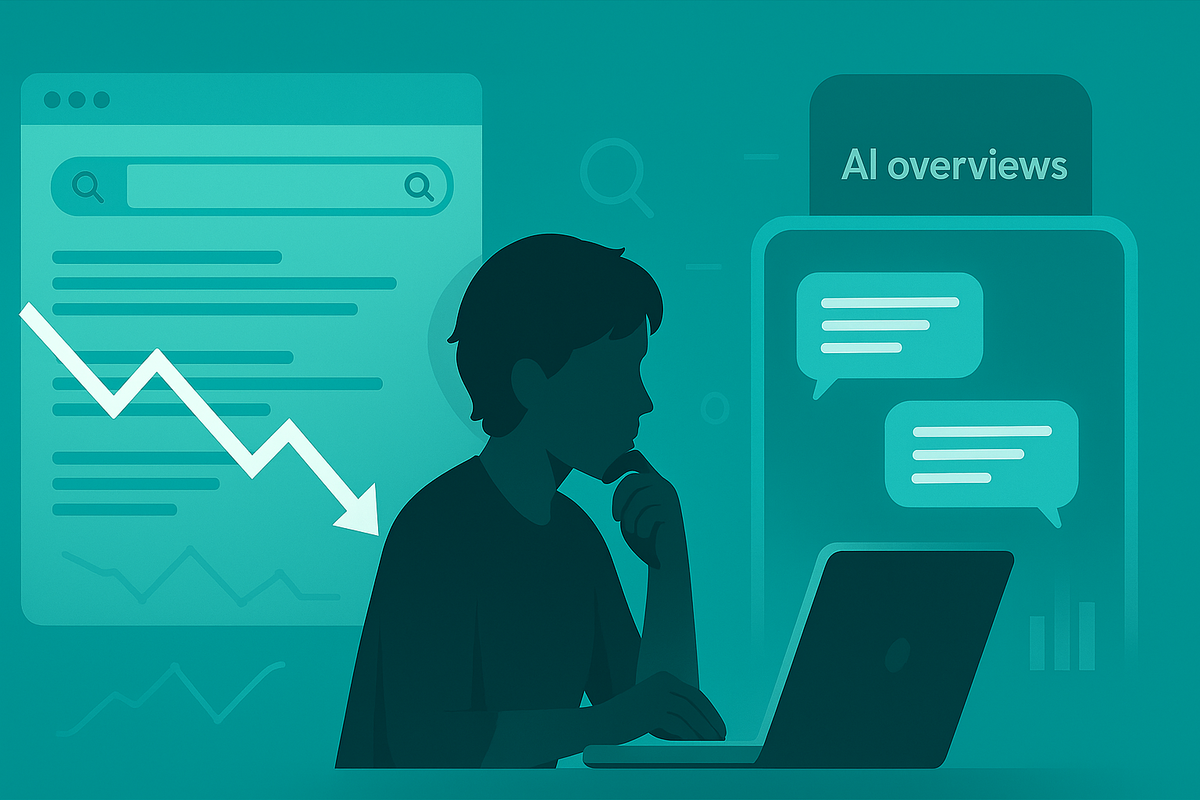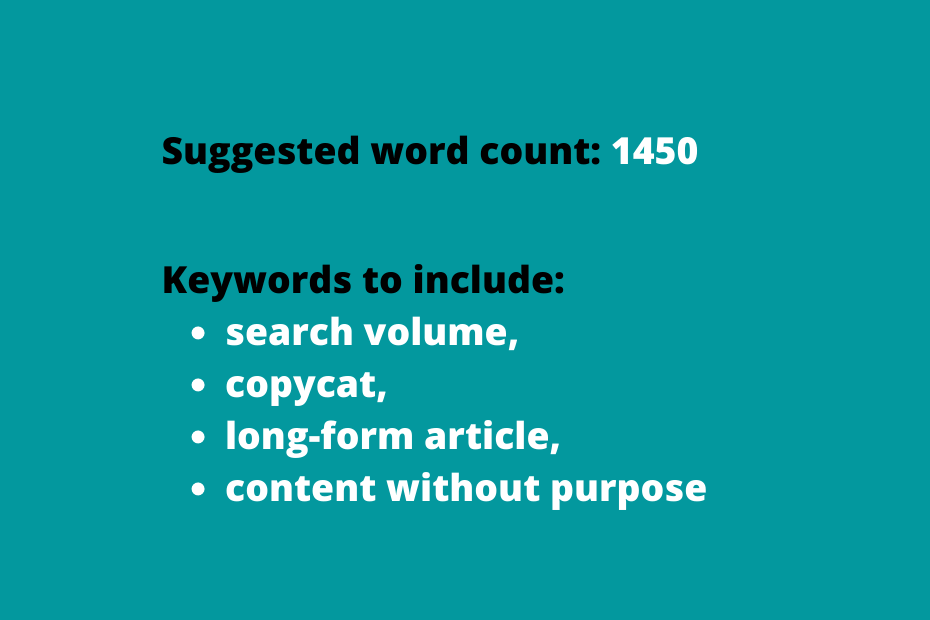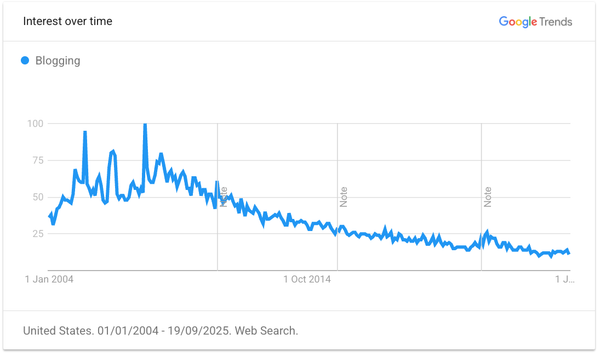Why I'm Not Ready to Optimize for AI (Yet)
Here's why "it depends" is the only honest answer about SEO's future and why going all in on GEO is not a smart move yet.

I usually share lessons driven by my experience tinkering on the internet. Sometimes I write because I have something to say, other times because I learn through writing. Over the past few months, I've been unusually quiet—and AI is largely to blame.
I don't enjoy philosophizing about practical subjects like SEO, but sharing my experience might be valuable as we navigate this shifting landscape. This piece captures where I stand today, though I'm certain my views will evolve.
Why I'm writing this now:
- AI is already disrupting everything: AI Overviews have decreased global website traffic. This blog receives 30% fewer clicks than last year, while my larger Hungarian blog was cut in half.
- My perspective is evolving: Beyond the traffic hit, AI has introduced new ways to gather information and solve problems. I started from a defensive position but now use LLMs in ways I couldn't have imagined three months ago.
- I'm practical (and lazy): When I get the same question repeatedly, I write an article I can reference later. And lately, everyone's asking about the future of search.
I'll explore when SEO still makes sense, my conflicted feelings about optimizing for LLMs, and whether I should finally pursue that AI-proof career in plumbing my laptop warrior friends always joke about.
Starting from a Position of Defense
What's missing from today's discourse about SEO's evolution is authors acknowledging their vested interests. So let me be clear: I want SEO to remain important because it's how I make my living.
That said, I doubt organic search will have the same business growth potential it does today. Change is accelerating, but let's not pretend the internet's rules were ever static or that Google was always fair to publishers.
SEO Was Getting Harder Long Before ChatGPT
Working with large marketplaces taught me a harsh reality: with millions of products, doing nothing didn't mean stagnation—it meant decline. Ranking in the same position as yesterday meant less traffic, not because anything broke, but because Google kept changing the game:
- More paid ad slots
- Paid ads designed to mimic organic results
- Google Flights, Jobs, and Shopping disrupting entire industries
- Featured snippets answering queries without requiring clicks
- Frequent algorithm updates rewriting the rules every few months

Studies show search volume continues growing year-over-year. Google loves citing new search queries and increased volume, arguing that while publishers get a smaller slice, the pie is bigger.
In reality, SEO today requires more work for fewer rewards—a trend that started long before ChatGPT appeared. LLMs simply accelerated this by introducing better ways to answer questions and forcing Google to respond with AI Overviews, creating further disruption for website owners.
SEO is Harder, But is it Dead?
Introducing "It Depends" SEO
The question isn't whether SEO makes sense in 2025—it's whether it makes sense for you.
SEO has always been extremely industry and market-dependent, making it unaffordable for many websites long before LLMs existed.
The B2B SaaS Reality: If you've run B2B SaaS recently, you've probably noticed everyone bidding heavily on your transactional keywords while competitors publish 3,000-word landing pages and somehow acquire backlinks from major media outlets. SEO agencies would suggest tons of work for marginal gains—or worse, recommend starting a blog.
The Hidden Opportunities: Meanwhile, unglamorous B2C websites that look like HTML-ified newspapers from 2002 still thrive. They operate in industries where competitors either use meta keywords or have never heard of SEO. High-volume transactional keywords remain up for grabs despite shrinking CTRs and AI threats.
Traditional SEO opportunities still exist for business growth, but AI has devastated entire industries. After creating hundreds of keyword research and content strategies for blogs and seeing their low ROI compared to transactional keywords, I shifted focus accordingly.

I won't miss "best CRM software" listicles with bonus suggestions, but I'm sad that good journalism and great content attract less traffic from traditional Google search.
Does SEO Make Sense in 2025?
Yes, but with caveats. Certain markets and industries still benefit from SEO, though click volume has decreased compared to previous years. Some website types and business models no longer make sense.
From SEO to GEO: The AI Search Revolution
ChatGPT, Claude, and similar tools offer more personalized and often superior search experiences while handling countless other tasks. They've completely replaced Google for certain informational searches in my workflow.
Since I use Google less, should everyone assume Google is dead and jump on the AI train?
Two arguments against discarding Google entirely:
1. Don't Think Like an Early Adopter

Most sites I've worked with still receive visitors from Yahoo, AOL, Bing, and other search engines. Early adopters use LLMs, but not everyone is technologically savvy. Most average users near me can't change their browser's default search engine, let alone download a new app to replace it. They'll keep using Google, as will tech-savvy users for queries where Google remains better or faster.
2. Google is Evolving

SEO rules constantly change, and Google has its LLM answer. Gemini is far more capable than its initial release. AI Overviews are more accurate and generate faster. Google has our search history, emails, Drive documents, and YouTube access. I often use Gemini not because their models are superior, but because their integration with other Google services is seamless.
We don't know where Google/Gemini will go, but it won't fade into oblivion. Even with decreased optimization rewards, millions of users remain reachable. The question becomes whether optimizing for other LLMs or channels can drive more users.
LLM importance is increasing while Google sends less traffic to publishers. I remain skeptical about optimizing for LLMs today—not because I want to tie myself to Google forever, but because Google is still where people search. Though LLMs gain ground, being cited by them is a different game with different rewards.
Using Chaos to Get Things Done
In peacetime, SEO faces natural resistance. Since improving organic search is framed as long-term, there are always more urgent opportunities when resources are scarce. Upon auditing new sites, I typically create year-long backlogs that wait until I fight for resources.
My biggest ally in getting SEO implemented has been catastrophic core updates that wrecked sites neglecting SEO. Somehow, recovering lost traffic proved more motivating than pursuing growth opportunities.
Chaos-fueled urgency sells things—SEO, tools, and services for SEO's future. I've never seen more "death of SEO" articles than this past year, but fortunately, most authors had solutions, often jumping on the same trend that decreases SEO's importance.
SEO for LLMs: My Thoughts on GEO
In my circle, I've observed two website types receiving significant LLM-driven traffic or leads:
- Big publishers with millions of monthly clicks from traditional search
- Smaller businesses, dev tool creators, and SaaS owners selling to tech-savvy audiences
Publishers experienced noticeable organic traffic hits that AI didn't compensate for. Meanwhile, most small businesses claiming more ChatGPT leads than Google leads never mastered SEO initially.
SEMRush created an optimistic chart about SEO/GEO dynamics that helps create urgency and hype around GEO amid decreasing traditional search clicks.

I want to believe in this reality like many others. But within "SEO is dead, long live GEO" voices, I haven't found convincing arguments. Advocates either:
- Create and sell GEO tools
- Invest in GEO tools
- Pivot from SEO to sell GEO services
- Are curious folks with one foot in the future but no present applicability
I'm pessimistic. Even predicting traffic from mature channels like SEO, I'd rather underpromise and overdeliver than paint rosy pictures. AI traffic will likely grow, but currently isn't the best time investment.
When I occasionally buy into the GEO narrative and ask what to do next, I'm back to traditional SEO:
- Buy LLM visibility tracker
- Realize my site isn't cited by AI
- Check "search query" used by AI
- Do traditional SEO for "search query"
This is still the narrative I understand and the game I've played—just with less favorable rewards.
Learning about LLM techniques for constructing answers fascinates me as much as building search engines to understand the internet. But I'm hesitant to dive deep into vector embeddings and retrieval-augmented generation. Not because they don't sound fun, but because I see limited upside compared to traditional SEO.
The Ugly Online Billboard Problem
My SEO approach always stemmed from the conviction that connecting searchers with businesses must benefit both parties. When I did my job well, I received praise, usually with comments like "I didn't believe in SEO before you." But business stakeholders didn't need to believe in SEO—my work was measurable. Conversions, clicks, and impressions provided sufficient overview of whether SEO worked.
Without conversions, the rest are vanity metrics, but they signal whether our efforts are working. Optimizing for mentions in Google's AI Overview or any LLM feels like a step backward. When selling SEO, I used billboards as counterexamples—you kind of know how many people saw your ad, but measuring is messy. With optimization for mentions, we're entering the online billboard business.
GEO lacks a compelling argument for me today. Being mentioned by AI with a 1% click chance sounds like regression.
My Predictions on SEO and GEO
Traffic Will Shift, But Not How Everyone Expects
Most forecasts predict shrinking traditional search traffic alongside dynamically growing LLM referral traffic. Under this model, the combined SEO and LLM visits would slightly surpass today's primarily SEO-driven numbers.
I believe SEO clicks will decrease at the alarming rate predicted, but this decline will be highly industry-dependent. However, I doubt LLMs will ever forward as much traffic as Google did in its prime. Even if LLMs surpass Google in usage, they'll fall short in forwarding visitors to third-party sites for years to come.
The GEO Tool Shakeout Is Coming
Most LLM visibility trackers will disappear within a few years. Traditional SEO tool providers will launch or enhance their LLM visibility features, and beyond the strongest new players, established SEO companies will capture this market. The current proliferation of specialized GEO tools feels unsustainable.
Everything We Think We Know About GEO Will Change
Searching in LLMs and optimizing for them will be completely different from what we imagine today. We've rapidly evolved from factually wrong AI Overviews to MCPs and AI agents. I wouldn't be surprised if searching in LLMs and doing GEO takes a form we can't even conceive of today.
The Exponential Problem
The human mind struggles with exponential change. No one expected ChatGPT to reach one million users in five days, and we lack perspective on AI adoption rates. Any predictions about AI will miss reality because most of us can't imagine what's possible.
I acknowledge my limitations regarding LLMs and GEO, but I also recognize that AI enables faster reactions. The days of implementing something and waiting three months to see impact are over.
The Missed Opportunity: Using AI to Do Better SEO
While everyone obsesses over getting cited by LLMs, I'm excited about using LLMs to create more discoverable and information-rich experiences:
- Inserting relevant data on transactional pages
- Crawling and answering FAQs with AI assistance
- Writing SQL queries automatically
- Cleaning millions of rows of noisy data without knowing R
These applications scale traditional SEO efforts in ways that optimization for citations simply can't match.
Some quotes worth considering (even for me)
"You can never plan the future by the past." — Edmund Burke
"The only way to make sense out of change is to plunge into it, move with it, and join the dance." — Alan Watts
"The future is an unknown, but a somewhat predictable unknown." — John Kenneth Galbraith
"The best way to predict the future is to create it." — Peter Drucker
This article represents my current thinking about SEO and AI's impact on search. As the landscape continues evolving rapidly, I expect my views will change accordingly. What matters most is staying adaptable while making informed decisions based on measurable results rather than hype.




